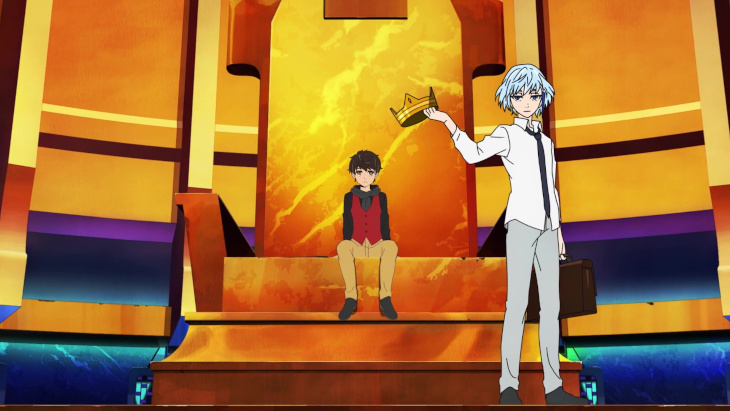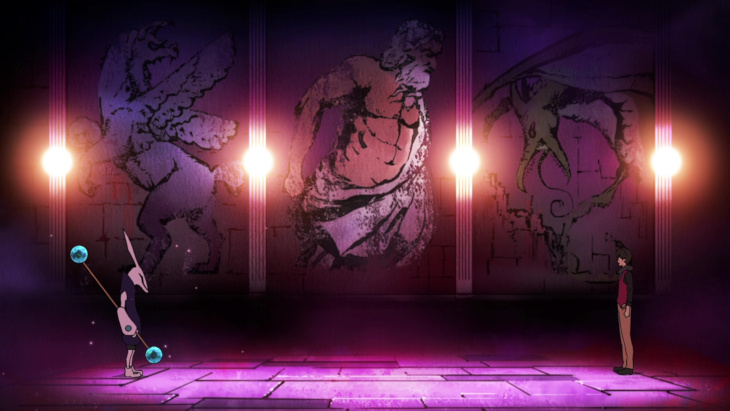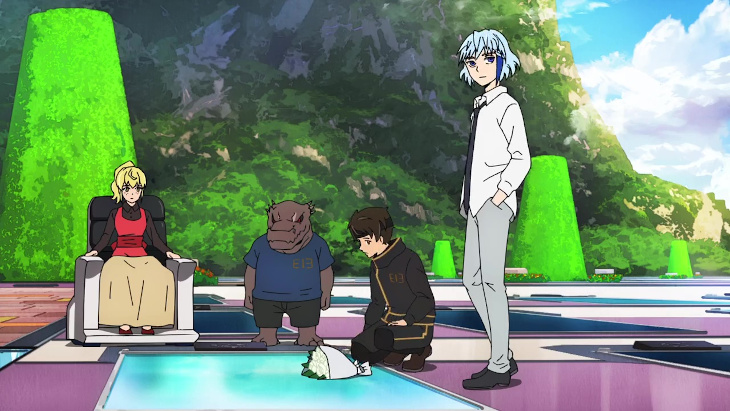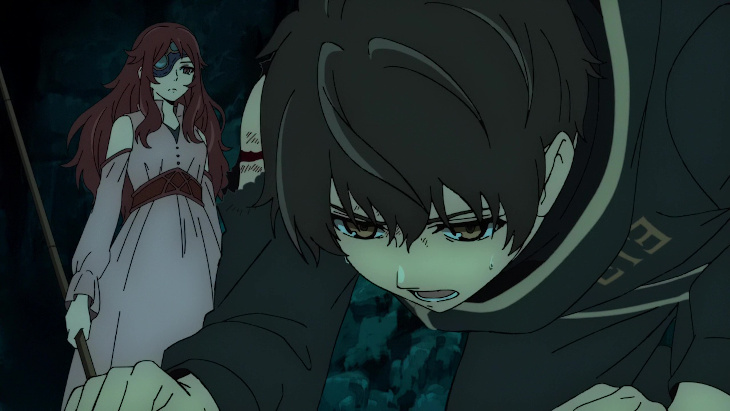
“The answers aren’t at the top of the Tower. The answers… I’ll find them. I’ll decide them.”
Continuing the trend which I started in my Listeners review, if I was to offer a personal award to Tower of God to mark the end of its season, it would be the award for “Most Unended Series.” Technically, that award sounds like it could be awarded to Sing “Yesterday” to Me, but that show never really felt like it got properly started in the first place. Tower of God, on the other hand, certainly got started, but it feels as if we only scratched the very surface of what it has to offer. This makes circumstances a little tricky, because, given Tower of God’s nonconventional nature as a Webtoon adaptation, I can’t honestly provide any odds on whether we’re likely to see another season. This season was certainly fun and interesting enough to warrant following up on it, but, as of writing this review, no second season has been announced. I’m going to present my thoughts on this work under the belief that another season will be announced, but keep in mind that, should such a venture fall through, I’d recommend knocking off a star from my final score due to Season 1’s thoroughly incomplete nature. All in all, Tower of God is a fun watch with interesting characters and really nice visuals that is mainly hindered by the sense that it is entirely a prologue.

Tower of God follows a mysterious boy named Twenty-Fifth Bam who, after losing his memory, was found by a girl named Rachel who took care of him. When Rachel suddenly leaves to try and climb the eponymous Tower of God, Bam follows her and, in doing so, meets a whole swath of interesting characters. For as basic a premise as the show provides, i.e. Climb the Tower and get whatever you want, the world is almost ridiculously complicated, and even after a full season, I’ll acknowledge that I only understood a relatively small amount of what was presented. Terms like Regulars, Rankers, and Irregulars are thrown around like crazy, and there are a lot of rules governing how the Tower works. As a result, I can’t say I walked away from the last episode with a clear understanding of how the act of climbing the Tower even works. Despite these rather obtuse details, the actual machinations and planning that drive the story are still compelling, which is a credit to the strength of the characters. That being said, the season ends at essentially a starting line. It’s not unlike playing through a game’s tutorial only to have the credits roll. It was a nice taste, but, if we don’t eventually get more, then it would be hard to recommend the experience on the simple merits that it feels excessively unfinished.

While the world of Tower of God confuses me greatly, I must admit to finding the characters very compelling. The cast is extensive, and going over all of the notable players would prove unfeasible, but their chemistry is a lot of fun. Bam isn’t a big planner, but he serves to bring people together with his earnestness. Fortunately, one of those people is Khun, the (I think exiled?) son of a noble family. While Bam is off making friends with everyone, Khun serves to employ tactics as subterfuge to protect both himself and Bam. We also have Rak, the huge reptilian man from the first episode who Khun largely coerces into helping them with either promises of combat or promises of chocolate. While I praise the characterization, there is one instance where it falls a bit short, and that’s in instances where it intersects the nature of the world the characters inhabit. Khun, for example, is motivated by his previous interactions with the nobility, but if you asked me to break down into a single sentence what his motives were, I really couldn’t, and that’s not solely because he’s a mysterious character. There is one character in particular whose motives and actions are practically baffling, and I can’t help but attribute the blame for that on the show’s world-building.

Telecom Animation Film, previously known as TMS Entertainment, brings a crisp quality to the production. The creature and character designs are imaginative and vibrant, and Telecom Animation Film did a stellar job of bringing them to life. The Company has often been involved in impressive productions, but they’re name isn’t a guarantee of quality, so I’m glad to see they pulled it off. The OP is solid enough, but I ended up skipping it during most episodes. It has a couple aspects that are immediately recognizable when it’s played. Still, I can’t shake the sense that it might just be a slightly less impressive version of The Promised Neverland’s OP. It’s my understanding that the Korean band that performed the opening song, Stray Kids, also performed Korean and English language versions for the respective dubs, which is a nice detail, though I’ve currently only heard the Japanese version.
Before I wrap up, a few Notes and Nitpicks:
- My understanding is that “regulars” are people who live in the tower and thus can be freely chosen to climb it or something, while an “irregular” is someone who opens the doors to the tower themselves… but I’m not 100% certain of that. Rankers are people who oversee testing on floors to the tower, I think, but they aren’t the same as the Administrator… which is some weird huge dragon thing… I think. I thought that Rankers were people who had previously climbed the tower, but I might be wrong about that. I don’t know if this sounds like word salad to anyone else, but it does to me. There is a brief overview of my understanding of the world, without getting into the weird machinations of King Jahad.
- While I do praise the varied character designs, some do seem a bit too weird… There is one character that looks like someone blended a ball of wool with a Lickitung, and it’s as strange as it sounds.




Add comment